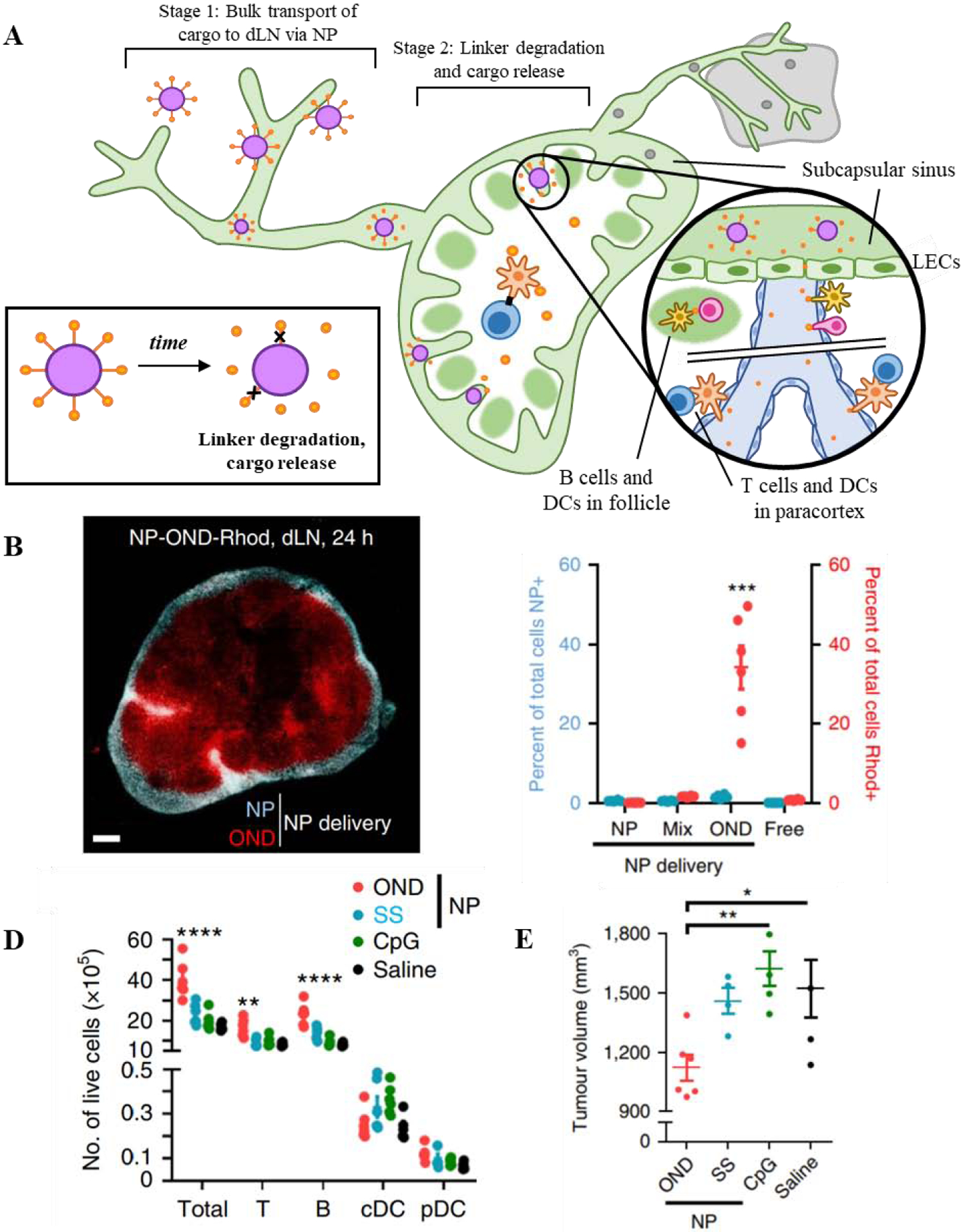Figure 4.

Concept of multistage drug delivery to TdLNs from a lymphatic-draining nanoparticle platform. A) Drug cargo is conjugated to 30nm poly(propylene sulfide) NPs via OND linkers which degrade in a temporally-defined manner. This allows cargo to transport to LNs via passive drainage from the peripheral interstitium (stage 1), then release from NPs via linker degradation (stage 2). B) Smaller molecular weight drug cargo linked to NPs via multistage OND chemistry (NP-OND-Rhod; red) freely diffuses throughout deeper portions of the LN, including B cell follicles and the paracortex, whereas NPs (blue) are restricted to the subcapsular sinus, C) increasing the total access of released drug cargo to dLN-resident cells. D) Delivery of immune adjuvant CpG linked to NPs via multistage OND chemistry (red) improves immune activation within the dLN over CpG linked to NP via non-degradable linker (blue) and free CpG (green) controls evidenced by increased dLN cellularity, E) leading to a reduction in tumor volume in a murine lymphoma model. Reproduced with permission from Ref [129] © 2020 Nature Publishing Group2.
